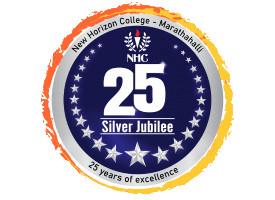BLOGS
Holistic Education: Shaping Well-Rounded Individuals

Just consider that your child is brilliant in academics but has fewer social skills or the social skills are excellent but his health is not good. Thus, it creates a state of imbalance and prevents the child from reaching his complete potential.
Thus, holistic education or holistic development is crucial in creating a “whole child.” This blog deals with holistic education, its benefits, and components.
What is Holistic Education?
Holistic education nurtures all aspects of a child’s growth: intellectual, emotional, social, physical, and ethical. In holistic education, the learner is encouraged to think creatively, collaborate, and act responsibly, preparing him/her for life outside the books.
Traditional education focuses more on academic accomplishment, standard testing, and teacher-led instruction. Holistic education, on the other hand, is more oriented towards the development of the whole child, i.e., emotional growth, social growth, and physical growth. It promotes hands-on learning, creativity, collaboration, and personal responsibility.
Key Components of Holistic Education
Emotional Development
Emotional intelligence is an important element in learning as it promotes self-awareness, empathy, and resilience. Self-awareness enables the students to know their strengths and weaknesses. Empathy leads to collaboration.
Resilience helps students overcome problems; it increases motivation and, consequently, improves emotional regulation, which will eventually improve academic and personal development.
Social Development
Social development is crucial to building healthy relationships. Social skills developed during projects, discussions, and group studies. These activities build effective communication, relationship management, and teamwork.
The skills gained are vital for student development and fostering interpersonal skills necessary for academic success and future careers.
Intellectual Development
Independent learning and intellectual exploration are encouraged through curiosity, problem-solving skills, and critical thinking. A balanced curriculum includes all these aspects and fosters creativity and resilience.
It promotes deep understanding of concepts and trains students to think analytically and adapt to challenges while applying knowledge in the real world, beyond just academic success.
Physical Development
Physical activity helps in holistic education by offering physical health, mental wellness, and cognitive function. Regular exercise enhances focus, reduces stress, and makes one feel good, thus the better academic performances.
A healthy lifestyle encourages complete development by balancing physical, emotional, and intellectual growth among students.
Benefits of Holistic Education
Academic Benefits
A holistic approach reduces stress by addressing the emotional, social, and physical well-being of a student. This helps manage anxiety and builds resilience within the student.
A balanced lifestyle develops self-awareness and fosters intrinsic motivation. Therefore, a student becomes more engaged, focused, and confident to achieve improved academic outcomes and overall growth.
Life Skills and Preparedness
Holistic education prepares students for real life by teaching them life skills such as decision-making, adaptability, and conflict resolution. Integrating emotional, social, and cognitive learning.
It enables students to live through complicated situations, make the most informed choices, adapt to changing circumstances, and resolve conflicts; hence, holistic education fosters the development of well-rounded individuals.
Fostering Independence and Responsibility
Holistic education encourages students to take responsibility for their learning by increasing self-awareness, goal-setting, and internal motivation. Through such personalized, experiential learning along with reflective practices, students take responsibility for their personal growth.
They become accountable, develop a lifelong passion for learning and have the capability of creating their destiny independently and confidently.
Check: Best Degree College in Bangalore
How Parents Can Support Holistic Education at Home?
- Have open-ended conversations with children that help them share their thoughts and emotions.
- Support activities like yoga, gardening, etc. that foster curiosity and creativity.
- Encourage them to engage in physical activities to boost their physical fitness.
- Involve children in cooking, decision-making, problem-solving activities, etc. that instill essential skills.
- To enhance focus and memory, motivate them to practice mindfulness.
- Encourage participation in social activities like volunteering.
- Expose children to different situations, cuisines, cultures, books, etc. to broaden their perspectives.
A home that is supportive helps achieve emotional, social, and intellectual growth through stability, encouragement, and open communication. Positive reinforcement, shared experiences, and appropriate guidance allow kids to build confidence, enhance interpersonal skills, and explore potential, thereby bringing life-long success.
Conclusion
Holistic education cultivates well-rounded individuals that nurture emotional, social, physical, and intellectual growth. Such education equips a child with the essential survival skills, adaptability, and love for learning. Inculcate holistic practices into your child’s daily routine to help them prepare in all aspects of life, ready to face every new challenge with confidence in the future.
Holistic education fosters intellectual, emotional, and social growth in students. This philosophy complements skill-building through high-income courses and strong career planning. For a complete educational experience, choose among the top bba colleges in bangalore or apply to the best-rated bcom colleges in bangalore
Frequently Asked Questions (FAQs)
What is Holistic Education?
Holistic education is an approach that emphasizes the overall growth of a child, integrating academic, emotional, social, physical, and spiritual developments to nurture well-rounded individuals.
How does Holistic Education Differ from Traditional Education?
Holistic education develops the child wholly, covering emotional, social, and life skills in addition to academics and standardized outcomes. Holistic learning focuses more on creativity and experiential learning instead of just memorizing the material.
What are the Key Components of Holistic Education?
Emotional, social, intellectual and physical development are the key components of holistic education.
How does Holistic Education Benefit Emotional and Social Development?
Holistic education develops the emotional and social aspect by encouraging self-awareness, empathy, and effective communication. Group work, mindfulness practices, and relationship skills help manage emotions, solve conflicts, and create relationships with others.
How can Parents Support Holistic Education at Home?
Parents can contribute to holistic education by allowing for open communication, encouraging creativity and physical activities, teaching life skills, practicing mindfulness, and exposing them to diverse experiences that develop their emotional, social, and intellectual growth.


